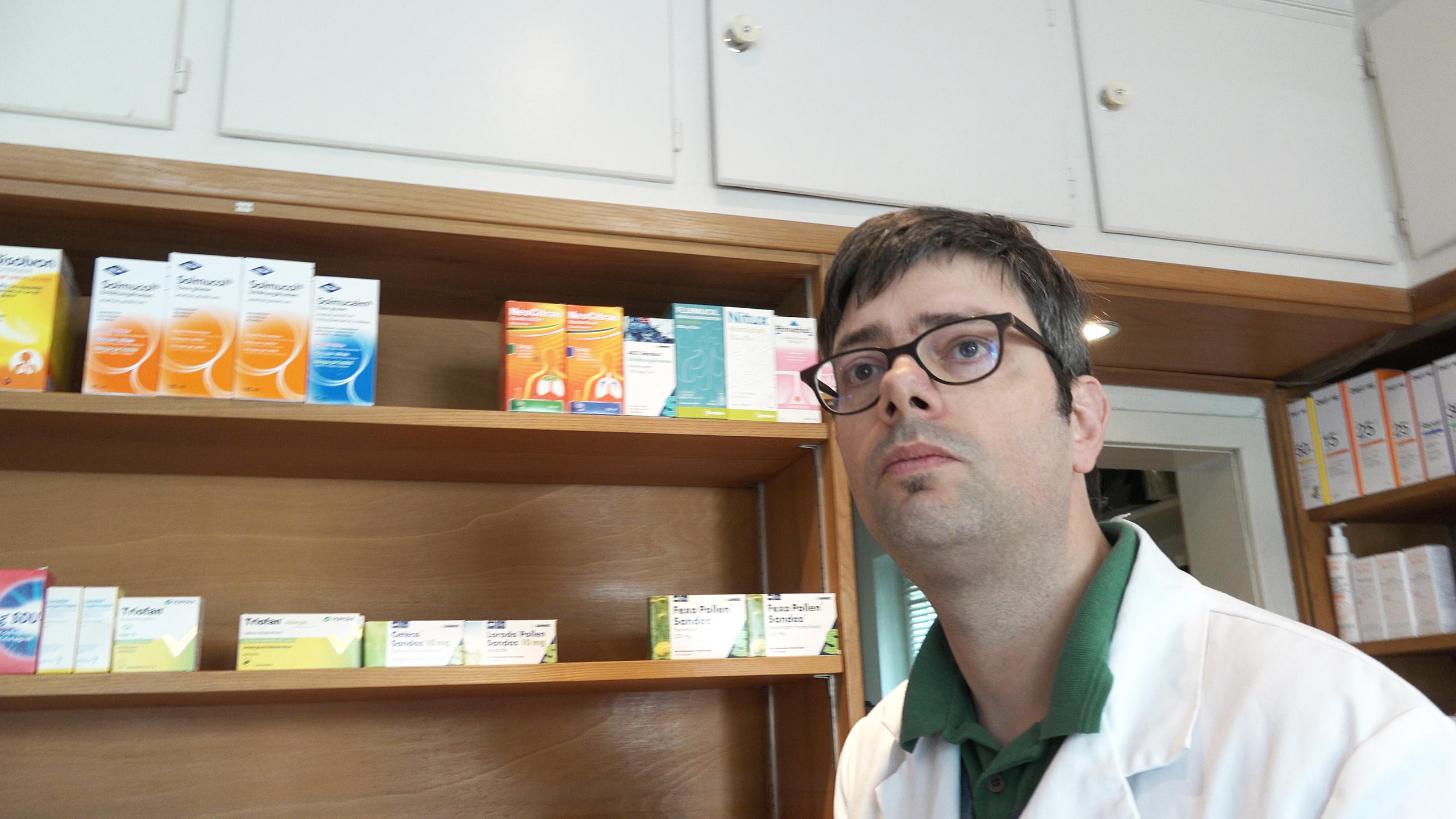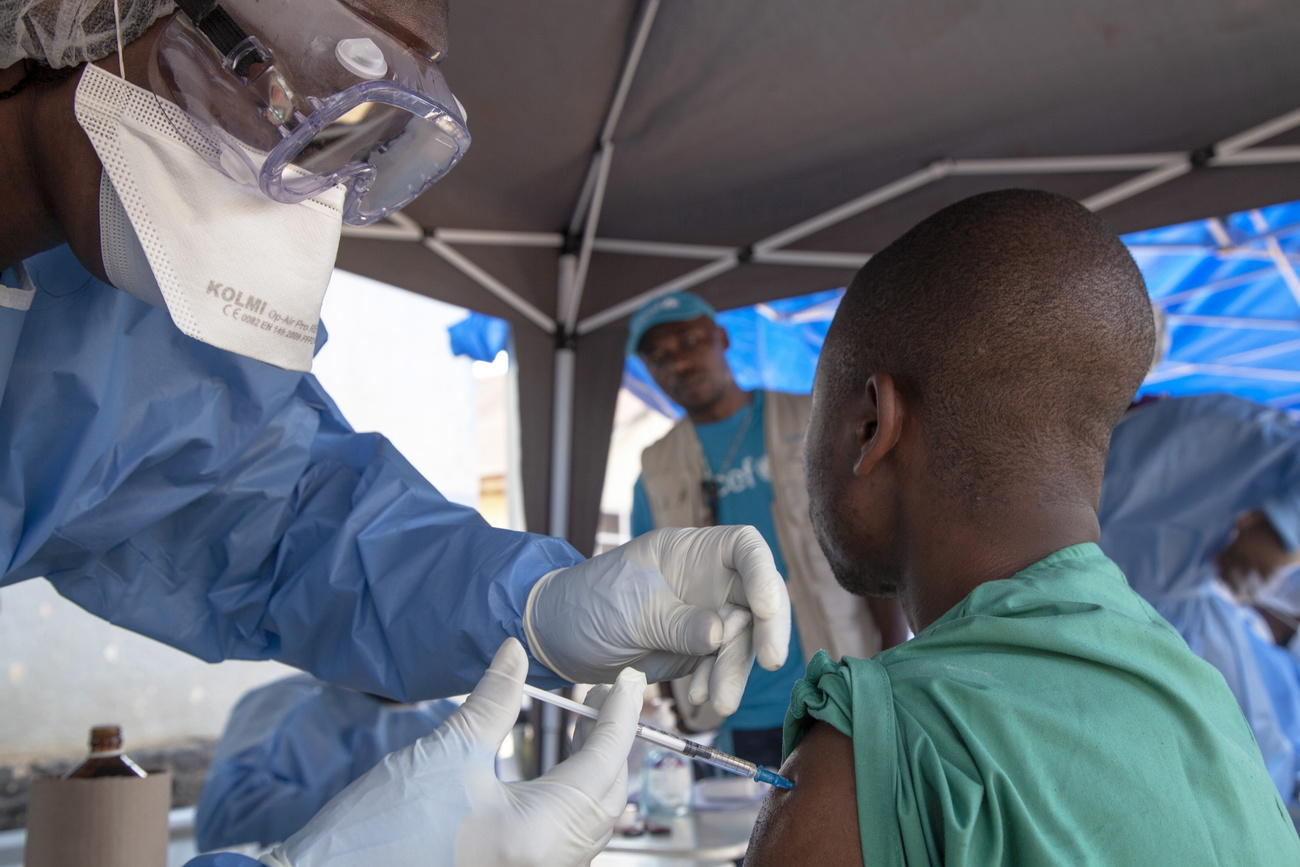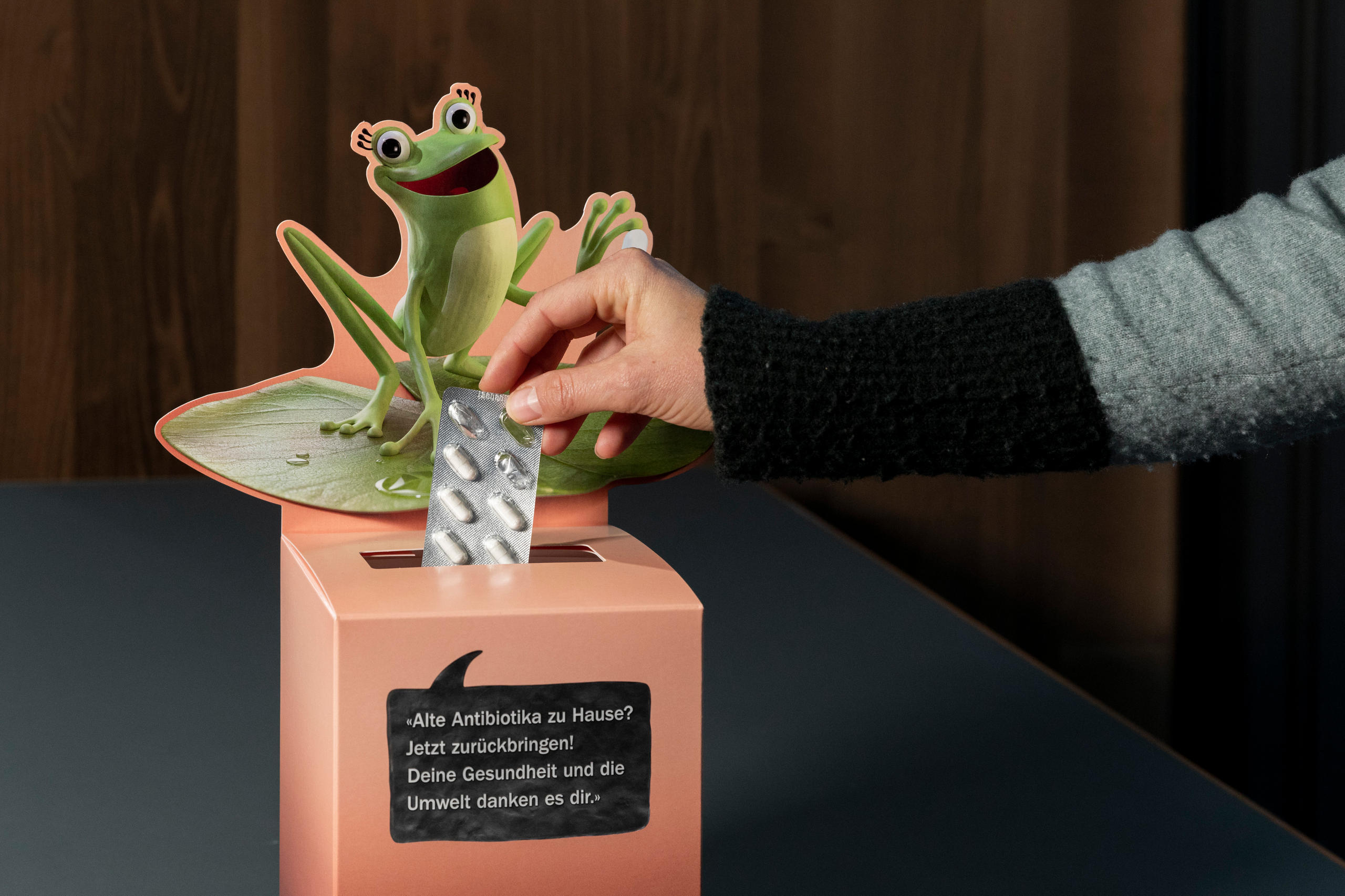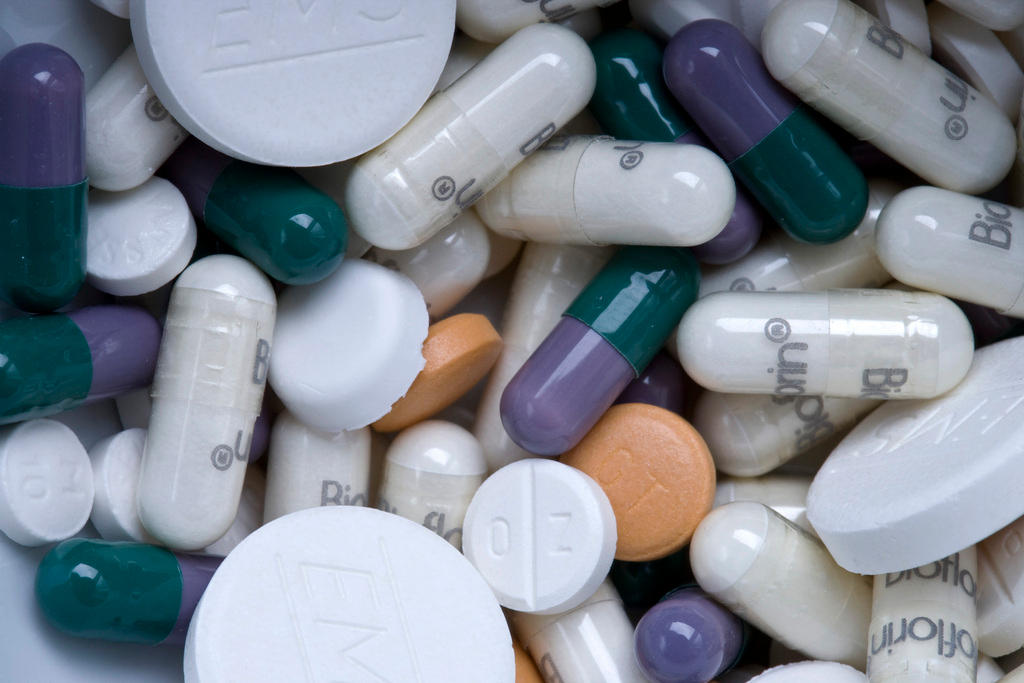Pandemic rattles already vulnerable antibiotics market

As money is poured into the search for a silver bullet to Covid-19, some global health experts warn that the pandemic could also worsen the slow-burning crisis in the antibiotics market, complicating patient care.
One of the early studiesExternal link of Covid-19 patients in Wuhan, the epicenter of the coronavirus outbreak, found that some patients, especially severely ill ones, had secondary bacterial infections. Antibiotics were administered but the study writes that high drug resistance rates to certain bacteria, such as Gram-negativeExternal link, raise the risk of septic shock.
While antibiotics won’t treat viruses like Covid-19, they are an important line of defense against secondary bacterial infections like ventilator-associated pneumonia, urinary tract infections and sepsis that are more common with prolonged stays in intensive care units, particularly among people with weak immune systems.

More
Coronavirus: the situation in Switzerland
However, there has been very little talk about antibiotics.
“We don’t have a line of sight into the supply and demand of antibiotics right now. We don’t know what antibiotics are being used to treat coronavirus patients and where there are problems,” says Manica Balasegaram, a medical doctor who heads the Geneva-based Global Antibiotic Research and Development Partnership (GARDPExternal link), which focuses on vulnerable groups, hardest hit by Covid-19.
“In outbreaks you still need essential medicines like antibiotics,” Balasegaram told swissinfo.ch. Hospital infections will increase because of the complicated, chaotic situation as more people are being put on respiratory devices and medical staff don’t have time to change gloves between patients.
This wouldn’t be a major concern if it wasn’t that the antibiotics market is already suffering from years of neglect. Shortages and drug resistance are on the rise according to the World Health Organisation, which estimates that drug-resistant diseases could cause 10 million deathsExternal link each year by 2050.
A reportExternal link from the biopharmaceutical industry published earlier this year found that 47% of the 65 responding companies experienced product supply chain disruptions of antibiotics.
With more countries shutting borders, trade restrictions in India and manufacturing disruptions in China, there are growing concerns that meeting rising demand could prove even more difficult.
Enea Martinelli, head pharmacist at the FMI hospital in Interlaken told swissinfo.ch that hospitals in Switzerland are getting organised and that supply isn’t a problem now. But he worries about what’s ahead in a few months’ time.
“This [pandemic] will have an impact on drug supply, but we don’t know which drugs yet,” says Martinelli.
Sandoz, a division of Novartis, and the largest generic antibiotic manufacturer in the world, told swissinfo.ch that it does not anticipate supply chain disruption for the majority of its portfolio at this time given strong mitigation measures and inventory levels.
However, the situation is very dynamic and there are aspects that are beyond any one manufacturer’s control. In late February, the company announced that it would keep prices stableExternal link for essential medicines, despite current uncertainties.

More
Swiss medical supplies threatened
Slow-burning crisis
ExpertsExternal link have been warning for years that the antibiotics market is in peril. Antibiotics are one of the oldest medicines but overuse and misuse over the years led bacteria to build up defenses against them. This has led to an urgent need for new antibiotics.
Marc Gitzinger, the CEO of Swiss biotech start-up Bioversys, says it worked “to offer antibiotics at a low price because of the high volume but this has changed tremendously.” Doctors have become more careful about prescribing antibiotics, only in cases where it is necessary.
Bioversys is working on an antibiotic to fight highly resistant Gram-negative bacterial infectionsExternal link in hospitals that have a mortality rate of 50%. It was intended to enter clinical trials later this year but Gitzinger fears that it will be put on the back burner as the EU and US drug approval bodies are absorbed in containing the coronavirus.
As more drugs go off-patent, their demand in emerging economies has risen and prices have dropped. This has led many companies to move out of the market because it isn’t profitable.
An evaluation of 30 companiesExternal link found that R&D for antibiotics is becoming increasingly concentrated among a few companies. During the World Economic Forum in Davos, Jay Iyer who heads the Access to Medicines Foundation cautioned that “we are relying on very few companies to hold the world supply of antibiotics in check.”
Several big pharmaceutical companies including Novartis and Allergan announced recently that they were moving out of novel antibiotic research and two antibiotic start-ups went belly-up last year. Roche, the other big Basel-based pharmaceutical giant, pulled out of antibiotics in the 1990s but has been rebuilding its expertise in the area.
Bottlenecks
“We have always warned that this could be a problem,” says Martinelli.
As Martinelli saw more production become more concentrated in Asia, he started the website drugshortage.chExternal link four years ago to track more frequent shortages of drugs, some of which are antibiotics. Four years ago, some 100 packages had shortages, now there are over 700. This is unrelated to Covid-19.
Around 70-80% of Active Pharmaceutical Ingredients (API), some of which is for antibiotics, in Switzerland come from Asia, where production is cheaper. This reliance on fewer production sites, farther outside of Europe means that problems at one factory can lead to major bottlenecks.
When Chinese factory closures due to the outbreak slowed drug production in India, the Indian government ordered export bans on twenty-six pharmaceutical productsExternal link, including some antibiotics.
“Companies have traditionally stocks between two to six months. They are able to deal with short term disruptions. The problem is if countries start stockpiling – tripling demand because they are in a panic and more impose trade restrictions. This could do more harm than good,” says Thomas Cueni, the Director General of the International Federation of Pharmaceutical Manufacturers and Associations.
Sandoz’s factory in Kundl, Austria is the only antibiotic manufacturing plant left in Europe, which the company says makes it less exposed to disruptions than others.
Martinelli says that he’s been in discussions with several industry managers and believes they are really stepping up to help in the crisis.
Wake-up call
Various governments and foundations have ramped up investment in antibiotics R&D over the last few years, but even with an influx of investment, experts argue the economic model is broken.
“It is impossible to have a sustainable market when you are not allowed to sell at a decent price,” Gitzinger says, illustrating his point by saying a sweet in an exclusive chocolate shop in Zurich is more expensive than amoxicillin, an antibiotic used to treat critically ill patients.
It is hard to get investors on board when there is no return, he adds, which is why most of the drug development companies have less than 100 employees. “We have an urgent situation and very few experts left that can develop antibacterial drugs. If we don’t change things and don’t get investment back into the field, we will lose more talent.”
Balasegaram from GARDP agrees that there is a need for a new model. “If we leave it to the market, we are in trouble. We need companies like Sandoz to stay in the business.
If we aren’t invested in public health research, we will run into problems like this again and again.”

In compliance with the JTI standards
More: SWI swissinfo.ch certified by the Journalism Trust Initiative














You can find an overview of ongoing debates with our journalists here . Please join us!
If you want to start a conversation about a topic raised in this article or want to report factual errors, email us at english@swissinfo.ch.